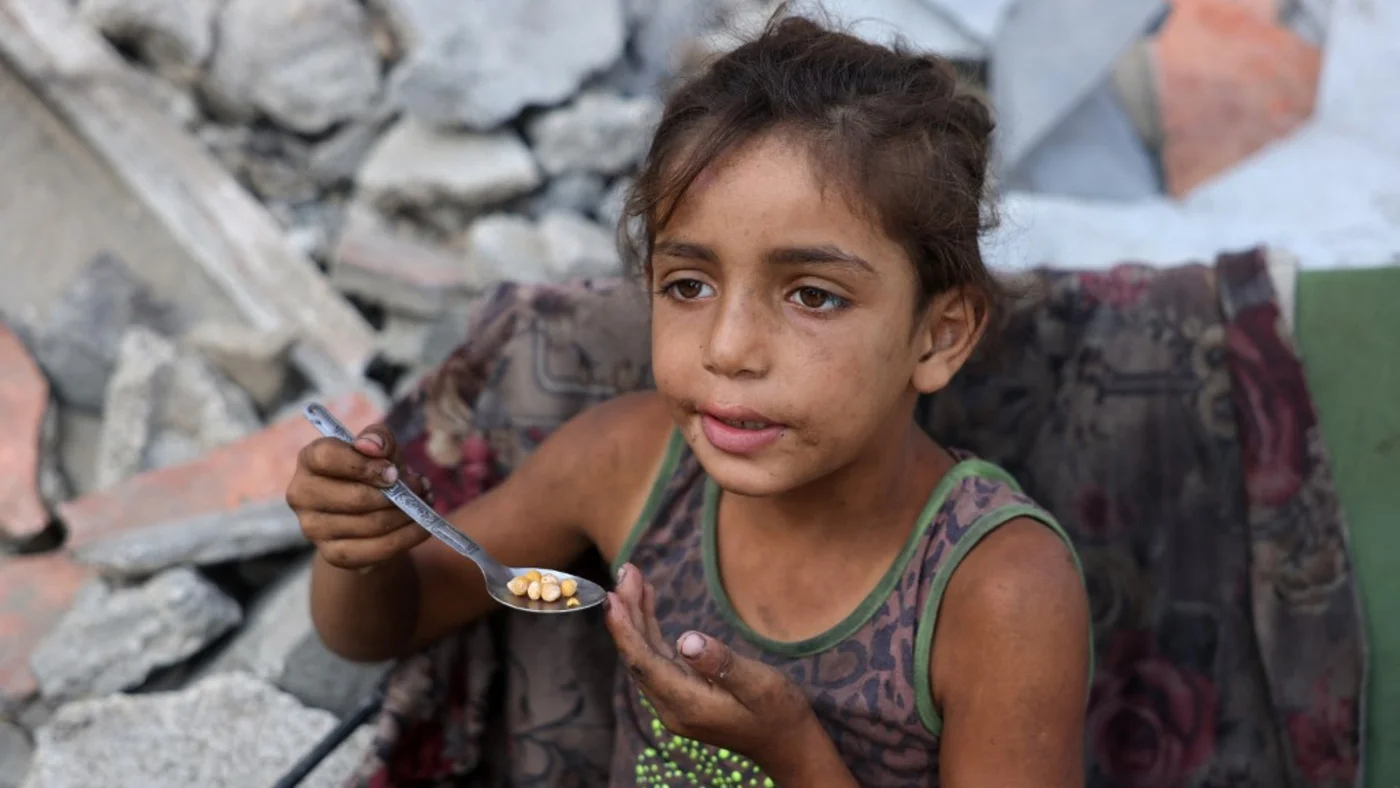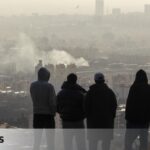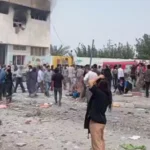
The genocide attack of Israel is deliberately undoing the fabric of Palestinian society
It seems that here in Gaza, we change forever. Has something in the anatomy of our brain changed over two years of life, beyond the limits of human resistance?
Whenever a friend from outside of Gaza asks me how we are, I answer: our situation challenges words.
I recently shared with friends abroad an audio recording of a minute of an Israeli drone zumbing nonstop over our heads. I told them to imagine that this nerve cut noise has not even diminished for a moment in the last 10 hours.
Now imagine living under such an overwhelming psychological pressure, almost without break, for almost two years.
What kind of psyche can emerge from such an extermination? Who survives will be able to recover?
Wounds inflicted on our souls cannot be captured by news bulletins, nor measured by statistics. They are devastating losses, lodged at the core of our humanity.
I found a friend on the street, who had been a university professor before this genocidal war. His face was pale and his clothes seemed to have been changed for months. His expression carried the weight of a lifetime of burdens.
I greeted him, “How are you?” It was a banal and empty question, just to start a conversation. He answered, “Our dignity was humiliated. We live at a time when thieves and looters prosper, while the honorable ones die of hunger and despair.”
Crushing those who remain
My friend captured reality precisely in this sentence. The society here is being restructured according to a deliberate policy prepared by the occupation authorities.
Since the beginning of this genocide, the Israeli army has attacked thousands of teachers, doctors, journalists and public voices in all sectors, following a strategy calculated to strip society of its intellectual and social leadership.
At the same time, the occupation elaborated a more insidious plan to crush those left. He encouraged the withdrawal of the few food trucks authorized to enter into international pressure, while preventing regular deliveries to warehouses and distribution centers-a clear green light for thieves attack trucks, stealing supplies, and reselling them at exorbitant prices for desperate desperate.
This policy has produced a new social class of looters, enriched by war and theft. And this is exactly the intended result: one of the extermination mechanisms is to encourage the formation of criminal gangs, disconnected from community values or collective purpose, to master the new order.
Respected figures in the community – university professors, teachers, doctors, reformists – will hardly loot trucks or run after deadly deliveries of American foods. Therefore, they are in danger of starving unless they get some remains to survive.
This distortion of childhood is not the work of nature. It is the result of a deliberate policy supported by the occupation.
There is a particular cruelty in this humiliation. Those who previously lived with social respect and professional esteem are now being demoted at the lowest level of Maslow’s hierarchy, working hard to ensure a poor food plate for themselves and their children. They are found in a society that moves towards savagery, where human relations are increasingly defined by a brutal struggle for survival.
Gaza’s children have changed. Recently, I was walking down the street when I saw a group of girls running after a truck. One shouted, “Fast, let’s throw stones at him!” Another warned, “There are armed men on top.” A third replied, “Okay, we’re not afraid of them!”
This distortion of childhood is not the work of nature. It is the result of a deliberate policy supported by the occupation.
When foods used to enter minimal but sufficient amounts, kept and delivered to international agencies for orderly distribution, such scenes never existed.
Israel made the decision to attack the same institutions that organized the distribution of help, with the explicit objective of sinking Gaza in chaos and destroying the foundations of social stability, destroying people’s humanity and leading them to savagery, in an attempt to strip them of their moral legitimacy.
Political actors seem reluctant to take the decisive measures necessary to stop the total collapse of Gaza. The devil whispered to Israel and its allied governments the idea of launching air aid. It was a perfect scheme, providing a show for cameras, but with little or no real impact on meeting the minimum needs of the population.
Simple Dreams Not Made
Every day, some planes launch their load somewhere in Gaza. Children watch, applaud and vibrate. However, the load of a single plane may be equivalent to half truck. Gaza’s minimum daily need is about 500 trucks. If about 1,000 air releases per day is necessary, what is the direction of 10 or 20?
They serve no purpose other than media theater. The applause and excitement of children can only be explained by the novelty of the experience: for the first time, aircraft flying over without throwing bombs or missiles. This in itself is a new phenomenon for the people of Gaza.
Prior to this war, the heavens were monopolized by Israeli aircraft of death – and so the children applaud to seeing planes that do not kill them. In this sense, air throws can be seen less as physical relief and more as a kind of passing psychological relief; A small way of relieving the pressure that would otherwise be unbearable.
Who could measure the damage that this war caused to the souls of the children of Gaza?
My nine -year -old nephew, Moayad, asked me, “When will the war end?” I said to him, “I don’t know. But why do you ask?” He replied, “Because we’re tired. Every time they say the ceasefire is near, he never arrives.”
I asked him what he would do if the war was over, and he said he wanted to go back to Rafah. “Even if there is a truce, the army cannot withdraw from Rafah,” I said. “It’s a border city.”
Then he asked me, “Why don’t you return to the city of Hamad, where did you live before the war?” I said to him, “What would I do there? My house is destroyed.”
His eyes shone when he replied, “Why not rebuild?” I said, “There’s no cement.” He insisted, with the simple wisdom of childhood: “You don’t need cement. You can rebuild with the rubble.”
And I thought to myself: if only the world could think about the innocence of children.
Shortly thereafter, his 10 -year -old sister, Ru’a, heard me reading the news: the occupation authorities allegedly allow some eggs to enter Gaza. She got radiant, turning to her mother and saying, “When the eggs come, I want you to cook them in every way possible: fried, boiled, with potatoes, with tomatoes.”
Your mother asked, “Everything in one day?” Ru’a replied, “Yes, because I miss them so much.”
Like all children of Gaza and their parents, Ru’a has not eggs, has not drinks milk or proves any kind of meat for over five months. But it’s been weeks since that report – and maybe more months are going through – while your simple and innocent dream still does not come true.
Originally published by Mee on 03/09/2025
Around Abu Artema
Ahmed Abu Artama is a Palestinian journalist and peace activist. Born in Rafah, Abu Artama is a refugee from the village of Al Ramla. He is the author of the book “Organized Chaos”.
The opinions expressed in this article are the author’s responsibility and do not necessarily reflect the editorial policy of Middle East Eye.
Source: https://www.ocafezinho.com/2025/09/04/fome-pilhagens-e-infancias-perdidas-o-colapso-planejado-de-gaza/

